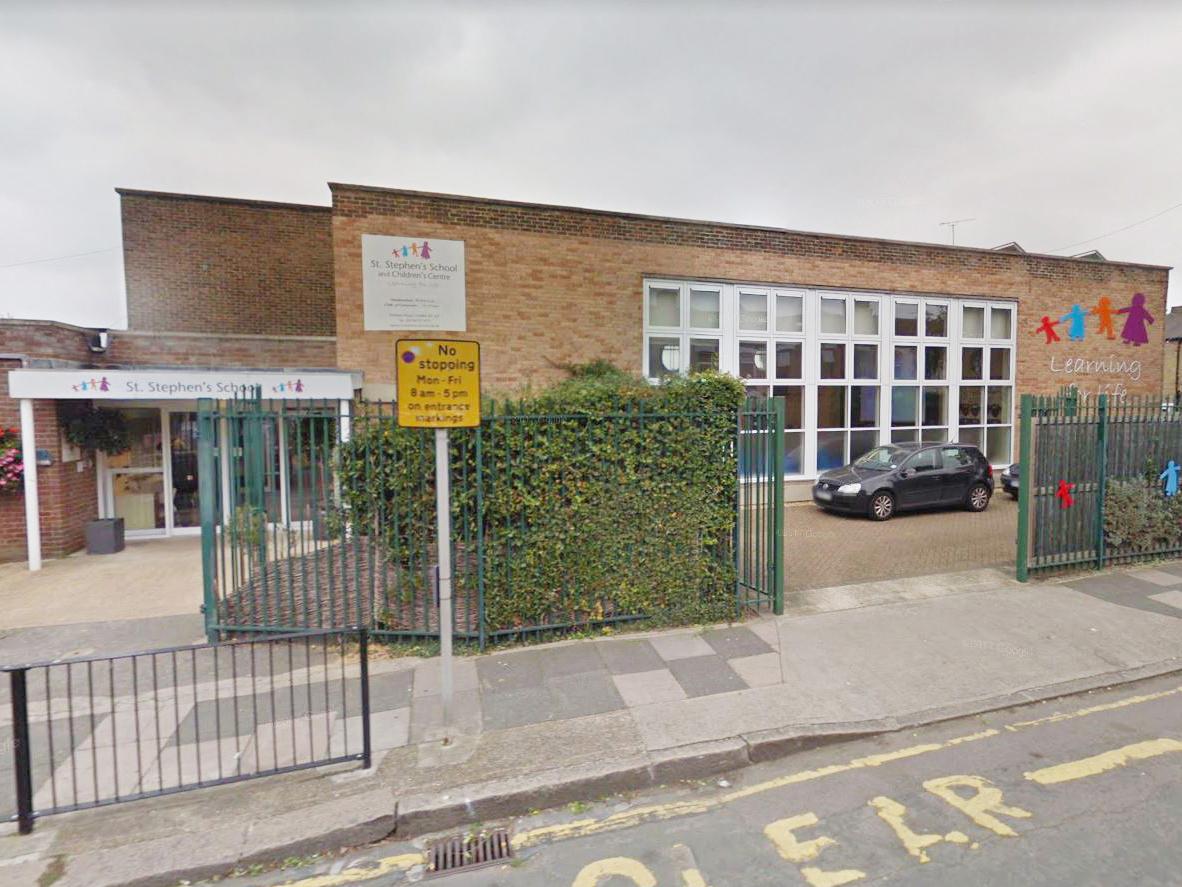Top primary school reverses hijab ban after major backlash sees chair of governors resign
More than 19,000 backed petition for freedom to wear garment at the school

Your support helps us to tell the story
From reproductive rights to climate change to Big Tech, The Independent is on the ground when the story is developing. Whether it's investigating the financials of Elon Musk's pro-Trump PAC or producing our latest documentary, 'The A Word', which shines a light on the American women fighting for reproductive rights, we know how important it is to parse out the facts from the messaging.
At such a critical moment in US history, we need reporters on the ground. Your donation allows us to keep sending journalists to speak to both sides of the story.
The Independent is trusted by Americans across the entire political spectrum. And unlike many other quality news outlets, we choose not to lock Americans out of our reporting and analysis with paywalls. We believe quality journalism should be available to everyone, paid for by those who can afford it.
Your support makes all the difference.A top London primary school has reversed a controversial decision banning children under eight from wearing the hijab to school.
The chair of governors who championed the ban stepped down from his role on Friday, as backlash against the decision grew.
St Stephen’s Primary School in Upton Park, Newham, faced sustained criticism over the decision to block girls from wearing the religious garment during the school day, to help Key Stage One girls “integrate”. The school also discussed curbing fasting among younger children at school during Ramadan.
More than 19,000 people signed a petition calling for the ban – which they described as an act of “oppression” – to be lifted.
It demanded the school reverse its decision “so that individuality, personal choice, heritage, culture and expression remain free and unregulated within the education system”.
On Friday, the “outstanding”-rated establishment – which topped The Sunday Times league for the Top Sate Primary School in 2017 – posted a Uniform Policy Update on their website. “The school has taken the decision to make changes to this policy with immediate effect and this follows on from conversations with our school community,” it said. “We will work with our school community to continue to review this policy going forward in the best interests of our children.”
The school had previously posted a message saying it will “reverse” the decision, before amending it to the above, The Guardian reported.
A separate petition signed by more than 1,400 people called for Arif Qawi’s resignation from the board of governors for his “suggestions on Hijab and fasting bans”.
It also criticised a social media post in which Mr Qawi said he was trying to “limit the Islamisation process, and turn these beautiful children into modern, British citizens.”
Further online comments urged the school’s head teacher Neena Lall, to follow in his footsteps and also step down.
In an email to colleagues on Friday confirming his resignation, Mr Qawi said: “I wish the school continued success, and am truly sorry that my actions have caused any harm to the reputation of the fantastic school.
“St Stephen’s will continue to hold a very special place in my heart, and I hope that the children and the staff flourish in every facet of their lives.”
He has previously called on the Department for Education to set national rules on uniforms so that schools did not receive criticism for having to make the decision. But the department said that while there were some guidelines, it was up to schools to make that call.
The DfE said: “It is a matter for individual schools to decide how to accommodate children observing Ramadan, and to set uniform policies but we would expect them to consider the needs of their pupils, and to listen to the views of local parents.
“To help inform these decisions, we issue clear guidance on school uniform and to help schools understand their legal duties under the Equality Act – which all schools must comply with.”
The guidance suggests that schools should work with the community and that pupils have the right to manifest their religion but not necessarily at all times, places or in a particular manner.
Activist Amina Lone, co-founder of the Social Action and Research Foundation, said on Twitter that the reversal of the ban was a step in “promoting religious extremism, mob rule and refusing to give #Muslim young girls equal gender equality rights”.
Chairman of the Education Select Committee, Robert Haflon, told The Sunday Times, it was “wrong” for the school to receive backlash over the ban.
He told the paper: “I am certainly in support of this school. It has very good results. We have to be very careful that very, very young children are not being forced by more hardline elements outside the school to do things that may not be right for the children.”
The Independent has contacted the school for comment.
Join our commenting forum
Join thought-provoking conversations, follow other Independent readers and see their replies
Comments